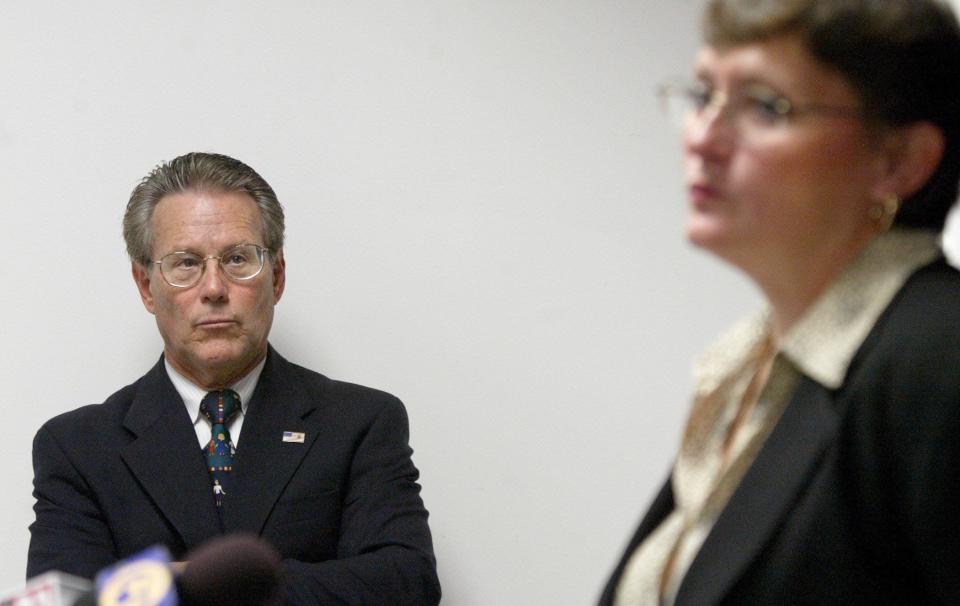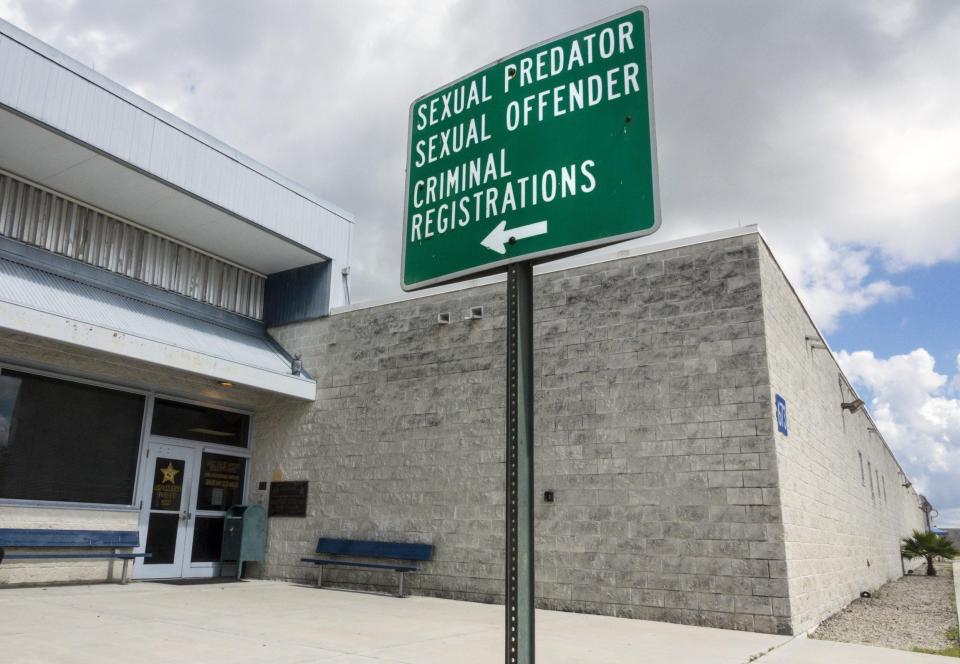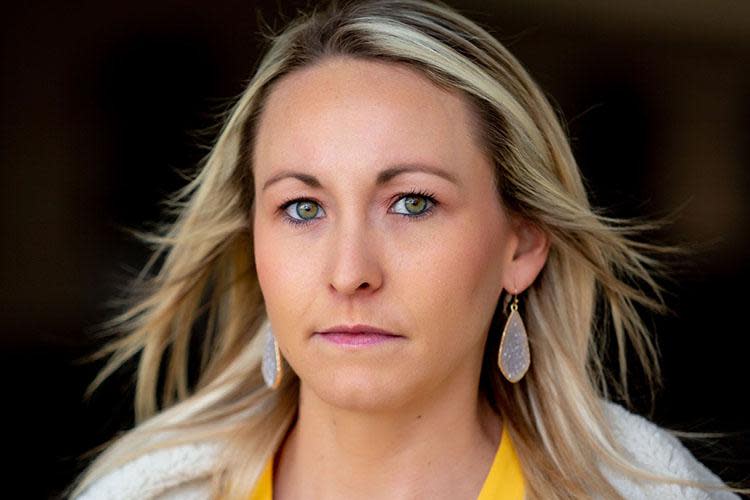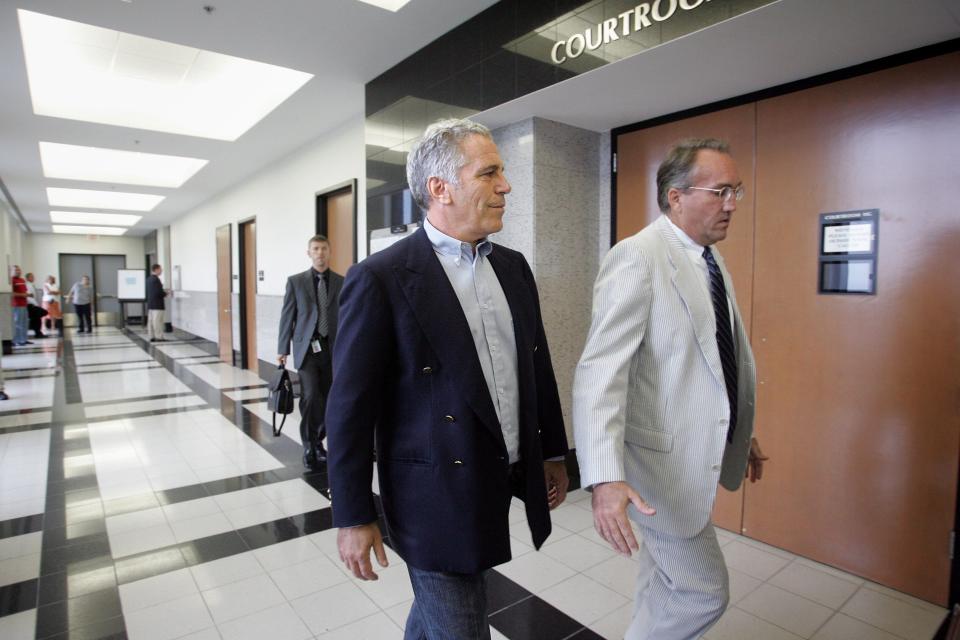Jeffrey Epstein, the first failure: Why The Post sued to make grand jury transcripts public
Some cut themselves. Several attempted suicide. Many worked in strip clubs, became sex workers, got addicted to drugs, went to prison. At least two overdosed and died, leaving behind young children.
Some are living full lives with no outward issues. But most of Jeffrey Epstein's victims, at least the ones who have gone public, say they struggle still with the damage that arguably the world's most prolific sexual predator wreaked on their lives when they were naive teenagers.
And the first time Epstein was charged with a crime in 2006 kicked off more than 15 years in which the survivors were denied justice at nearly every turn by the public servants paid to protect them.
Jeffrey Epstein victim goes public: ’I want to know why’
Read The Post's 2019 investigation: Jeffrey Epstein case, the first failure: To the first prosecutors, Epstein's victims were prostitutes
State Attorney Barry Krischer had first chance to exact justice
The first such denial happened under then-Palm Beach County State Attorney Barry Krischer's watch. When presented with a case from Palm Beach police involving multiple victims with similar stories, he declined to use his own power to charge Epstein, as is the more common path to court. Instead, Krischer handed the decision to a grand jury, where everything happens in secret.
Grand jurors came up with only one charge, and it labeled the victims prostitutes.
After finding that Krischer torpedoed his own case in its 2019 investigation, Epstein: the first failure, The Palm Beach Post sued to find out what happened in the grand jury room and how the case was derailed early on.
"From what limited information is now in the public domain, the State Attorney's referral to the grand jury — which would be out of the ordinary for this type of case — gives rise to a strong inference of favoritism and corresponding disregard for the rights of the minor victims of Epstein's sex trafficking," The Post's lawsuit reads.
Did the grand jurors hear about the police evidence in its entirety? Why did only one victim testify and how was she questioned by prosecutors who undermined her with her social media pages supplied to them by Epstein's attorneys? The charge that emerged was solicitation of prostitution — a charge that a john approaching an adult sex worker might face. It did not reflect the ages nor the multitude of the victims.
Where several victims went to school: ‘Open secret’ at Royal Palm High: At least 15 students were lured to Jeffrey Epstein’s Palm Beach mansion

Palm Beach police's recommended charges carried up to 75 years in prison
Prosecutors typically give grand juries a menu of charges to choose from when considering criminal charges. What was on this menu or was the solicitation charge the only one prosecutors presented? Did the grand jurors know about the multiple and more serious charges recommended by police of four counts of unlawful sexual activity with a minor under 18 and one count of lewd and lascivious molestation?
Epstein would have faced what equated to a life sentence — up to 75 years — if he'd been convicted of all five and if the prison terms were served one after another.

The single charge from the indictment, a felony, carried up to 15 years in prison. Epstein was sentenced to 18 months for that and another prostitution-related felony and served only 13. His sentence was shaved because state law at the time allowed reduced sentences for good behavior.
Grand jury secrecy can be lifted 'in furtherance of justice' under Florida law
The Post has spent more than four years trying to shed light on those secret proceedings to get some answers for what one defense attorney said could be upward of 500 victims. In addition to informing the survivors, The Post argued that the public's trust in the justice system was also at stake. The newspaper based its arguments on a little known part of state law that says the grand jury secrecy veil could be pierced "in furtherance of justice."

Had Krischer, the first prosecutor ever to consider criminal charges against Epstein, charged Epstein himself and leveled more serious charges, Epstein might have been stopped in 2006.
Krischer's move to take his case to a grand jury was highly unusual. Most often, grand juries in state courts consider criminal charges in murders that carry the death penalty and in public corruption cases. Federal prosecutors later told Department of Justice investigators that they believed Krischer wanted political cover.
None of the nearly two dozen other victims and witnesses found by Palm Beach police testified. Krischer's prosecutors never spoke with any of them, never even prepped the one girl for her testimony, state attorney's documents showed. Her mother was trying to get in contact with Krischer's office days before a scheduled grand jury convened, yet officials there never returned her calls. That session was one of three that was cancelled as Epstein's lawyers pumped in opposition research to Krischer's office.
More: FDLE report on Jeffrey Epstein gives county officials a pass they don't deserve | Frank Cerabino

Once the secret grand jury proceedings took place, sources told The Post, the prosecutor who presented the case used the girl's MySpace pages depicting drinking and talk of sex to discredit her. Later Lanna Belohlavek, the assistant state attorney who presented the case, said she had wanted to see how the girl would hold up in a jury trial. She didn't address how undermining the girl's testimony might heighten the possibility that Epstein wouldn't be charged at all.
The denials of justice had begun.
Victims' families told Palm Beach police detective Joseph Recarey that private investigators were harassing them. The private eyes tried to question the victims where they worked, possibly revealing how they were involved with Epstein to co-workers. One's stepmother had been run off the road.
Recarey told prosecutors about the incidents. Witness tampering is a crime. Nothing happened.
Victims had no say about Epstein's plea deal nor could they talk about how they were affected by him in court
When Epstein pleaded guilty in 2008 to two prostitution-related felonies, victims were not notified, even though they had a legal right to be consulted about plea deals before they were signed. When the judge asked Belohlavek whether the victims knew about the deal, Belohlavek said she had spoken with several herself as well as their lawyers, and that they had all agreed with the plea. Nothing in state attorney's files indicate that attorneys at the office ever had any conversations with the victims.
Uninformed about the status of the case and the plea deal, the victims were denied the opportunity to go to court and tell the judge before sentencing how Epstein had harmed them. The judge also sealed the plea agreement so no one could see it. Like so many things in the Epstein case, it was highly unusual. The Post and the victims sued successfully the next year to unseal it.
On Epstein's childhood: POST EXCLUSIVE: Never-before-seen Jeffrey Epstein biography surfaces
Survivor Courtney Wild, who Epstein recruited while she attended Lake Worth Middle School, has been one of the most persistent in trying to get their rights recognized. She and another victim sued in 2008 to get a federal judge to throw out the plea deal because they weren't told about it.
Federal Judge Kenneth Marra ruled in 2019 that their rights had indeed been violated.
Months after that ruling, it looked as if, finally, Epstein might be stopped. He was arrested by New York federal law enforcement and charged with sex trafficking of minors over incidents in Florida and New York.
Within a month of his arrest, Epstein was found hanged in his cell. The medical examiner said it was a suicide. After Epstein's death, Marra said the case before him could go no further — the death made it moot.
Still, another avenue for some justice opened in July 2020, when Ghislaine Maxwell, Epstein's former girlfriend, was arrested. She was sentenced in 2022 to 20 years in prison for conspiring with him to sexually abuse minors.
The entire matter could have ended in Palm Beach County 13 years before Epstein died and prevented what likely was years more of sexual abuse of underage girls.
Though the trial court judge hailed The Post's arguments to reveal the grand jury materials, he ruled against the endeavor in December 2021. Circuit Judge Donald Hafele said that he didn't have the authority to make the transcripts public.
The 4th District Court of Appeal, however, decided in May 2023 that the trial judge did have the authority to release those transcripts and ordered Judge Luis Delgado (who replaced Hafele on the case) to review them and release the ones that would further justice.
Delgado examined the grand jury transcripts starting in July 2023. In the meantime, Florida Sen. Tina Polsky and Rep. Peggy Gossett-Seidman, a Democrat and a Republican, introduced legislation meant to pave the way for release of the transcripts in The Post's case. The Boca Raton legislators' bill passed unanimously.
Within minutes of Gov. Ron DeSantis signing the bill alongside three survivors, Delgado issued an order denying release of the documents under current state law. He invited The Post to bring it back to him when the new state law went into effect on July 1.
If you or someone you know has been a victim of sexual assault, the Palm Beach County Victim Services and Rape Crisis Center can help. Reach their helpline at 561-833-7273, or toll-free at 866-891-7273.
Holly Baltz is the investigations editor at The Palm Beach Post. You can reach her at hbaltz@pbpost.com.
This article originally appeared on Palm Beach Post: Jeffrey Epstein: Why Palm Beach Post sued to unseal grand jury papers

